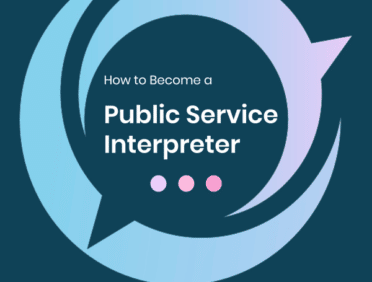Filter by
Law Enforcement: Police Interpreters
The Vital Role of Interpreters in Law Enforcement
In the United Kingdom’s diverse and ethnic terrain, efficient communication is critical in all areas, particularly law enforcement. When language issues emerge during police investigations, court procedures, or other legal engagements, the job of a law enforcement interpreter is critical.
These experienced specialists act as important connectors, ensuring that all parties involved properly comprehend and participate in the legal system.
The Multifaceted Responsibilities of Law Enforcement Interpreters
Law enforcement interpreters perform a variety of functions in addition to language interpreting. Their tasks include enabling correct communication between law enforcement authorities and those who do not speak English fluently. Whether assisting during interviews, giving language support during investigations, or assisting in courtroom situations, interpreters must transmit nuances, emotions, and legal terminology with accuracy.
The Ethical Standards of Law Enforcement Interpreters
One of the main tasks of law enforcement interpreters is to maintain impartiality and confidentiality. They must remain objective observers, refusing to change or influence the topic of conversations. Furthermore, interpreters follow strong codes of conduct that protect the privacy and rights of all parties involved in procedures.
The Increasing Need for Law Enforcement Interpreters
The demand for law enforcement interpreters continues to expand, reflecting the UK’s diverse language landscape and global links. From major cities to rural areas, law enforcement encounters people from various language backgrounds, needing the presence of experienced interpreters to promote effective communication and protect fairness and justice.
Empowering the Deaf Community: The Role of British Sign Language (BSL) Interpreters
British Sign Language (BSL) interpreters also play an important role in law enforcement, allowing communication for the deaf and hard of hearing. Their skill allows for seamless interaction between law enforcement officers and members of the deaf community, ensuring equitable access to justice and participation in legal proceedings.
Supporting Law Enforcement Interpreters
Despite the difficulties they face, law enforcement interpreters find fulfilment in their job as facilitators of justice. Their ability to overcome language barriers, develop understanding, and help protect individuals’ rights illustrates the value of linguistic diversity in the justice system.
Investing in Access to Justice: The Importance of Interpreter Services
To acknowledge their vital contributions, law enforcement organisations must continue to promote and invest in interpreting services. Authorities promote fairness, equity, and inclusivity by ensuring access to skilled language support and encouraging trust and collaboration among varied populations.
Frequently Asked Questions (FAQs)
Individuals in the United Kingdom often go through an organised process to become qualified police interpreters. First and foremost, a high level of oral, writing and reading fluency in both English and another language is required. Then, one usually needs receives specialised training and certification from recognised institutions or professional groups such as Learn Q or the Chartered Institute of Linguists (CIOL). Interpreters will often achieve a Level 3 Certificate in Community Interpreting certificate to start their careers, and then a Diploma in Public Service Interpreting (DPSI) to be able to receive legal assignments. Furthermore, getting practical experience, such as through volunteer work, can be advantageous. Finally, accreditation requires completing relevant evaluations or examinations, such as language proficiency and interpreting skills tests.
Law enforcement interpreters promote communication between law enforcement professionals and others who do not speak English well. Their tasks include correctly relaying verbal and written communications, being unbiased and confidential, and ensuring cultural sensitivity during exchanges. They may also aid in interviews, investigations, court processes, and other legal settings, ensuring that all parties understand and are understood effectively.
The pay scale for police interpreters in the UK varies depending on factors such as experience, qualifications, language competency, and the agency or organisation for which they work. In general, more experienced and qualified translators command higher rates or wages. Rates may also vary depending on the intricacy or urgency of the projects, with extra remuneration for unsocial hours or specialised abilities.
Yes, those aiming to be police interpreters in the UK are often subjected to extensive background investigations, including criminal record checks. This is done to ensure that they fulfil the required standards of integrity, trustworthiness, and fitness for working in sensitive law enforcement situations. Regulations governing criminal records may differ depending on the hiring agency or organisation, although compliance with relevant legislation, such as the Rehabilitation of Offenders Act 1974, is essential.
The average compensation range for police interpreters in the UK varies greatly based on factors such as geography, language spoken, experience, and which agency the interpreter works for. Salaries typically vary between £20,000 and £40,000 per year, with the potential for higher compensation for experienced or specialised interpreters, particularly those working in high-demand languages or areas.
Interpreters in the UK might work in a variety of fields, including law, healthcare, business, and government. Compensation varies greatly throughout sectors, with rates affected by factors including demand, assignment complexity, and industry standards. Interpreters working in the legal or law enforcement sectors, for example, are usually paid more because of the specialised nature of their work and the amount of skill necessary.
Individuals who want to work as police interpreters in the United Kingdom must usually be fluent (speaking, writing and reading) in English and at least one additional language. They should also have excellent communication and interpersonal skills, cultural awareness, and the capacity to maintain objectivity and confidentiality.
Formal training, certification, and appropriate experience are frequently necessary to meet the standards set by law enforcement and interpreting organisations.
A sign language interpreter may be hired in a law enforcement setting when communication involves individuals who are deaf or hard of hearing and communicate primarily through sign language. Sign language interpreters are educated to interpret sign language into spoken language, ensuring effective communication between law enforcement authorities and the deaf or hard of hearing, especially during interviews, investigations, or court processes.
In court proceedings in the United Kingdom, interpreters play an important role in facilitating communication between parties who do not speak the same language or have limited English competence. They provide accurate and objective interpretations of verbal and written communication, ensuring that all parties can understand and may fully participate in legal procedures. Interpreters follow professional rules of conduct and ethics, ensuring confidentiality and impartiality throughout the procedure.
Some of the highest-paid interpreters in the UK’s law enforcement industry have unique language talents or specialise in particularly challenging languages. These interpreters’ rates may be greater due to the scarcity of their language competence and the crucial nature of their work in facilitating communication in sensitive law enforcement circumstances.
Yes, it is feasible to make a living purely from interpreting, especially for people with advanced levels of ability, specialisation knowledge, and substantial experience. Interpreters often operate as freelancers, contracting with numerous clients and agencies. It is rare for interpreters to work as full-time employees for organisations such as law enforcement, government departments, or interpreting/translation companies.
Common obstacles for police interpreters in the UK include deciphering complex legal language and processes, dealing with high-pressure and emotionally charged situations, maintaining impartiality and secrecy, and effectively addressing cultural and linguistic variations. Additionally, interpreters may face issues with scheduling, task management, and assuring accuracy and clarity in interpreting.
While particular credentials or certifications may differ depending on the sector or specialisation, working as an interpreter in the UK frequently necessitates proving proficiency in English and at least one other language, as well as specific interpreting certification. Professional groups such as Learn Q and the Chartered Institute of Linguists (CIOL) provide certification and accreditation for interpreters, including the Level 3 Certificate in Community Interpreting and the Diploma in Public Service Interpreting (DPSI)
Yes, interpreters who work with law enforcement agencies in the UK are normally required to pass Disclosure and Barring Service (DBS) checks, formerly known as Criminal Records Bureau (CRB) checks. These checks are used to determine an individual’s eligibility for roles that require access to sensitive information or vulnerable individuals, such as law enforcement.
Individuals seeking to become qualified interpreters in the UK must normally demonstrate fluency in English and at least one other language, as well as complete the required academic credentials and professional training. This includes earning certification or diplomas in interpreting (specifically the Level 3 Certificate in Community Interpreting certificate to start their careers, and then the Diploma in Public Service Interpreting (DPSI)), completing specialised training programmes, and registering for professional bodies such as the Chartered Institute of Linguists (CIOL) or the National Register of Public Service Interpreters (NRPSI).
Yes, there is a high demand for BSL interpreters in the UK law enforcement industry. With an increasing emphasis on accessibility and inclusivity, law enforcement agencies recognise the necessity of providing effective communication to people who are deaf or hard of hearing. BSL interpreters serve an important role in enabling encounters between law enforcement officers and members of the deaf community, ensuring that their rights are protected and that they may fully participate in court proceedings.
The competitiveness of pay packages for translators in UK police forces varies based on location, fiscal constraints, and demand for language services. While particular pay package statistics may not be readily available, larger metropolitan police forces or those serving diverse communities may offer a more competitive salary due to having larger budgets.
Police officers are often paid more than interpreters in the UK due to reasons such as their degree of training, duties, and the hazards connected with law enforcement employment. Police officers are often paid salary, benefits, and allowances according to their job and status within the force. Interpreters, who are often freelancers, can earn a variety of fees depending on factors such as language skill, specialisation, location and demand for their services.
Interpreting can be an intriguing professional path for someone with good language skills, cultural competence, and a desire to facilitate communication across different linguistic communities. Some factors that make interpreting appealing include the ability to work in a variety of settings, the possibility of flexible hours or freelance work, the satisfaction of assisting others in bridging language barriers, and the possibility of competitive compensation, particularly for specialised or in-demand language pairs.
The average hourly wage charged by interpreters in the UK varies according to language pair, specialisation, experience, geographic area, and type of assignment. In general, freelance interpreters may get paid between £15 and £100 per hour, with prices potentially higher for specialised or rare languages, urgent assignments, or work outside of regular business hours.
Interpreters have several primary responsibilities, including facilitating communication between people who speak different languages, conveying messages accurately and impartially, ensuring cultural understanding and sensitivity, maintaining confidentiality, and interpreting both spoken and written communications in a variety of settings, such as meetings, interviews, court proceedings, and medical appointments.
Yes, there is currently a scarcity of British Sign Language (BSL) interpreters to fulfil demand in the UK. The demand for BSL interpreters continues to increase, driven by statutory accessibility requirements, increased awareness of deaf people’s rights, and the necessity for inclusive communication in a variety of fields. However, the availability of experienced BSL interpreters has not kept up with demand, making it difficult for the deaf population to receive timely and adequate linguistic help.
Legal interpreters that specialise in British Sign Language (BSL) have unique knowledge and abilities for interpreting in legal settings. They have a thorough awareness of legal vocabulary, procedures, and concepts, allowing them to accurately interpret complicated legal discourse in both sign language and spoken language. Legal BSL interpreters follow professional standards and ethics, guaranteeing effective communication and fair access to justice for deaf people in legal situations.
A hearing interpreter is a professional who enables communication between people who speak different languages but have normal hearing. They interpret spoken language into another spoken language or sign language, providing accurate and unbiased communication between parties.
A sign language interpreter, on the other hand, is skilled in sign language and specialises in interpreting between sign language and spoken language, especially for people who are deaf or hard of hearing and may need extra assistance owing to linguistic or cultural differences.
Yes, individuals with hearing problems can work as interpreters in the UK, although it depends on the degree of the impairment. Individuals who are deaf or hard of hearing and fluent in sign language, such as British Sign Language (BSL), can become qualified sign language interpreters, specialising in the translation of sign language into spoken English.
Usually even sign language interpreters do still need to be able to hear spoken language clearly so that is a consideration for anyone wishing to be a sign language interpreter.
Individuals with hearing impairments can succeed in interpreting roles with the proper training, certification, and accommodations, contributing to better communication accessibility and inclusion.
In rare cases, especially in complex or difficult communication circumstances involving deaf people, two deaf interpreters may be required to function as a team. This strategy, known as “team interpreting,” improves communication by lowering interpreter fatigue, assuring accuracy and completeness of interpreting, and offering mutual support and feedback among interpreters. Team interpreting can be used in situations like long meetings, judicial processes, or highly technical conversations.
Listening, understanding, memory retention, analysis, linguistic processing, and target language generation are all part of the cognitive process of interpreting. Interpreters must absorb incoming information quickly and accurately, analyse linguistic and cultural nuances, make decisions about how to effectively communicate meaning, and create coherent and faithful interpretations in real time. Cognitive flexibility, attention management, and problem-solving abilities are required for effective interpreting.
To register as a qualified interpreter in the United Kingdom, individuals must normally complete specific qualifications that relate to interpreting. This regulates interpreter certification. Achieving the qualification often requires candidates to demonstrate language proficiency, complete recognised training or education programmes, passing certification exams and / or assessments, and following professional behaviour and ethics guidelines.
Professional organisations such as Learn Q and the Chartered Institute of Linguists (CIOL) provide these qualifications.
Yes, provision exists to seek the participation of an interpreter during court hearings in the UK. Individuals who require linguistic assistance, such as defendants, witnesses, or other legal parties, have the right to request an interpreter to ensure that they understand and are understood. Courts must provide linguistic assistance to those with limited English proficiency or communication challenges in order to ensure fair and effective access to justice.
The demand for interpreters within UK law enforcement agencies varies depending on area demographics, migration patterns, and unique case requirements. Interpreting is often in high demand for certain languages. Services in law enforcement situations include, but are not limited to, those spoken by immigrant groups, asylum seekers, refugees, and those involved in cross-border investigations or human trafficking cases.
Arabic, Polish, Urdu, Bengali, Romanian, and Somali are some of the most often spoken languages.
Related Courses
Browse Learn Q CoursesInterpreting Level 6
From: £50.00 / month for 4 months
Level 6 Diploma in Public Service Interpreting Self-led Preparation Course
Interpreting Level 3
From: £75.00 / month for 8 months
Level 3 Certificate in Community Interpreting Course and Exam Ultimate
Related Articles
Browse Learn Q Blog11th Apr 2023
How to Become a Paid Law Enforcement Interpreter?
20th Mar 2023
How to Become a Paid Home Office Interpreter?
12th May 2023
Start Your Career as a Well Paid UK Interpreter

Got a question?
Get in contact and we will
get back to you











